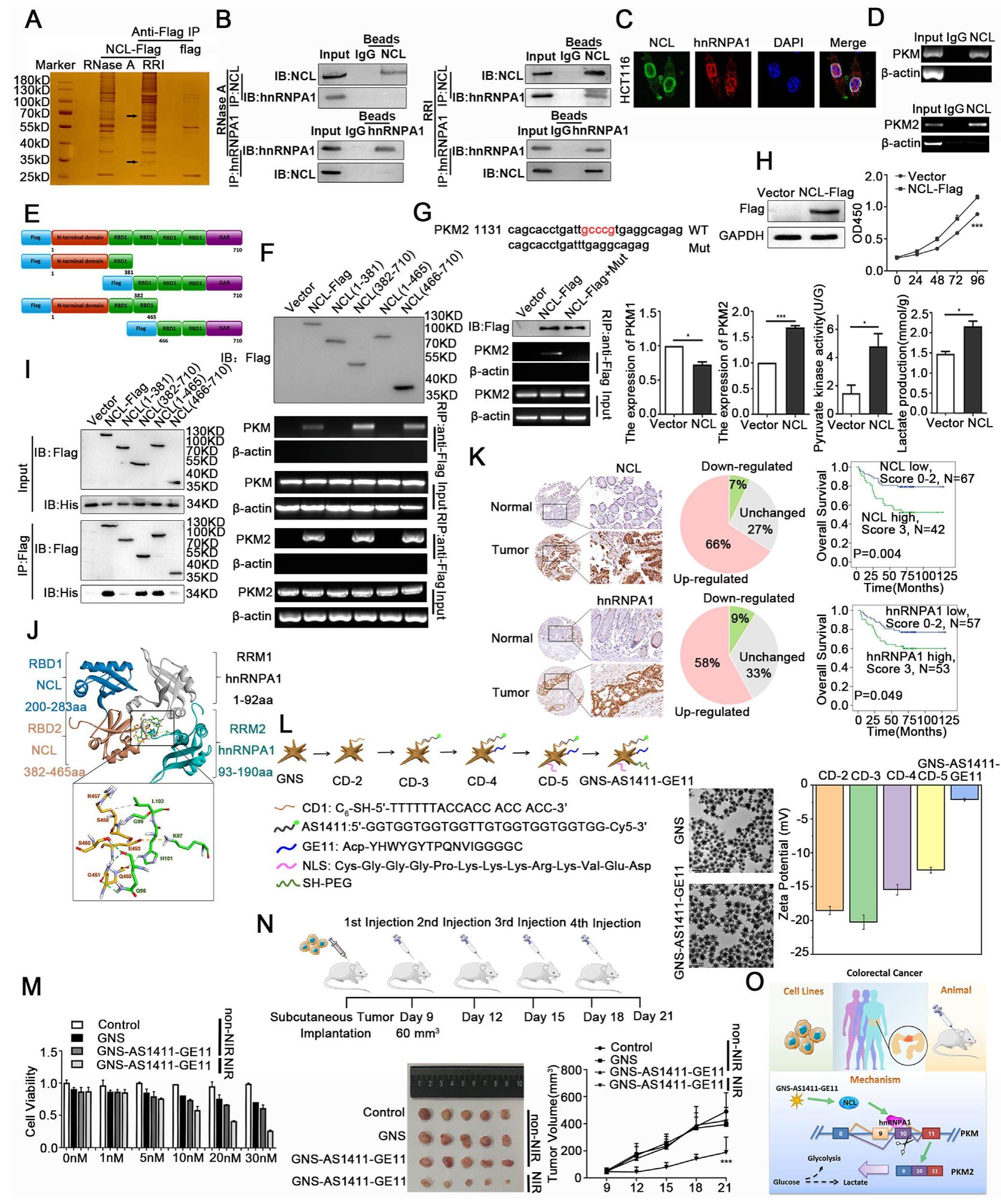
Nucleolin promotes tumor growth in colorectal cancer by enhancing hnRNPA1-mediated PKM2 alternative splicing


Emerging evidence indicates that metabolism reprogramming plays an important role in cancer progression. RNAbinding protein nucleolin (NCL) was reported to function as an important oncogenic factor in multiple cancer types. However, the role and mechanism of NCL in cancer metabolism are unknown. In this study, we found that NCL directly interacted with hnRNPA1 and promoted CRC cell proliferation by enhancing aerobic glycolysis. Mechanistically, NCL bound PKM pre-mRNA and increased hnRNPA1-mediated PKM alternative splicing, resulting in increased PKM2 expression and tumor growth. A seed-mediated growth approach was used to synthesize gold nanostars (GNS), which were further modified with aptamer AS1411 (an NCL ligand), GE11 (an EGFR ligand), and nuclear localization signal to obtain functionalized nanoparticles (GNS-AS1411-GE11). GNS-AS1411-GE11 efficiently enter the nucleus of CRC cells and blocked the glycolysis-promoting effects of NCL, inhibiting the growth of CRC xenograft. Targeting NCL is a promising strategy for treating CRC.
